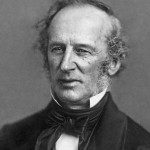To reject Dr. Marshall’s approach (i.e., the Beatles are "intellectual poison" and "straight-up evil") does not mean one should approve of everything an artist creates. Nor does it mean we should deny that truly wicked cradles of filth do exist in pop culture and disguise themselves as art. Filth ought to be exposed. But to do that, with fairness and depth, means that we start by asking what the artist is trying to do. It means we analyze with discernment and discretion. It means we admit that many things we might dislike, or disagree with, or find baneful, do have real artistic value that should be understood rightly. It means we know that just because some artist was a wretch of a human being does not mean that what he created has no merit worth our praise. [Read more] Read more
















